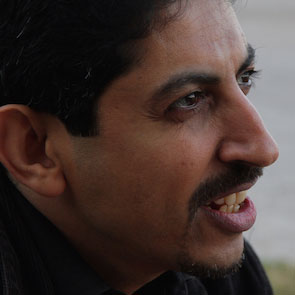Want Reform in Bahrain? Listen to Human Rights Defenders
The Irish Times this week ran an opinion piece defending the Northern Ireland Policing Board's training and financial support for Bahraini security forces. When rights group Reprieve uncovered that a state-owned Belfast business trained forces in Bahrain that use torture, staff in Northern Ireland who worked on projects aimed at "reforming" Bahrain's criminal justice system went on the defensive. Pauline McCabe argued that “the sharing of experience, best practice and skills” is critical for progress. But organisations and experts in Northern Ireland who want to see reform in Bahrain cannot disregard local rights experts in the process. Instead of defending the surface level reforms of Bahrain's criminal justice institutions, the Northern Ireland Policing Board ought to be consulting with Bahraini human rights defenders. The sheer number of them who have been imprisoned and tortured for their peacefully advocacy makes them experts on the need for criminal justice reform in Bahrain.
After years of support from Northern Ireland, reforms that Bahrain apologists cite are surface deep, and easily refuted by credible reports from human rights defenders on the ground and in prison. - Mary Lawlor, Executive Director, Front Line Defenders
Bahraini activists continue to publicize consistent and credible reports of torture emerging from detention centres. Human rights defenders who have spent time in prison in the past 12 months say children are still held in cells with grown men, something the government denies and its allies seem unaware of. A prominent feminist held in Bahrain's Isa Town Women's Prison called our office in Dublin last month to report denial of medical care to prisoners and freezing temperatures in the cells.
This November marks five years since the release of Bahrain Independent Commission of Inquiry – a laudible government-sponsored initiative in 2011, but an embarrassment five years later. A June 2016 report from Americans for Democracy and Human Rights in Bahrain, which works extensively with human rights defenders in the country, found that the government has fully implemented no more than two of the 26 recommendations made in its own report five years ago. Twitter users now refer ironically to #BahrainStyleReforms when they post photos of arrested human rights defenders, riot police shooting teargas at children and tortured bodies laying in morgues.
Yet UK tax payers are still sending £2million to Bahrain to fund “reform.” One initiative stemming directly from the BICI was the creation of a police ombudsman, who failed to investigate credible allegations of torture in the case of man sentenced to death. Other projects funded in part by Northern Irish taxes include Bahrain's National Institute for Human Rights, an allegedly independent watchdog whose members are appointed by an unelected monarch. The Prisoners' and Detainees' Rights Commission is run by members from the same public prosecution office that sentenced human rights defenders to prison for their peaceful activism. The Special Investigations Unit, also funded by the UK, refused to file criminal charges for the torture of human rights defender Nazeeha Saeed. The SIU cited a “lack of evidence” despite three independent medical reports and Nazeeha herself identifying the perpetrators.
Millions of pounds of UK tax payer money has been spent on improving the image, rather than the conduct, of Britain's authoritarian ally. Organisations in Northern Ireland have given the al-Khalifa regime a particularly useful PR gift, by nominally linking Bahrain's alleged reform with one of the most famous peace processes of all time.
But it takes no international expertise to remove Bahrain's de facto ban on human rights monitors entering the country, nor to end political trials of human rights defenders. It takes no international expertise to refrain from threatening activists in exile and issuing INTERPOL red notices to have them deported. Allowing free speech, including in relation to poltical processes and the legitimacy of a hereditary dictator, would not require any international expertise. What these things require is political commitment to human rights. This is hard to find in any apparent corner of the Bahraini government, despite the assertions of the author.
Ms. McCabe says Bahrain's criminal justice reform process has “human rights at its core.” Continued reports of torture, prevailing impunity, and the silencing of critics suggest otherwise. Abdulhadi Al-Khawaja, a Bahraini human rights defender and former Protection Coordinator at Front Line Defenders in Dublin, is serving a life sentence for his role in the peaceful 2011 protests. He was so badly beaten during his arrest that he required major surgery on his jaw, his trial in a military court fell far short of international standards, and the BICI affirmed he was tortured in detention and, but he remains behind bars.
If the Northern Ireland government and the people it represents want to see police reform in Bahrain, they need to listen to local experts, human rights defenders, whose credible, well-researched, first-hand reports of abuse by security forces have been largely cast aside in the march to clean up Bahrain's image. Experts looking to reform the criminal justice system in Bahrain need to start by calling for the release of human rights defenders imprisoned within it.

